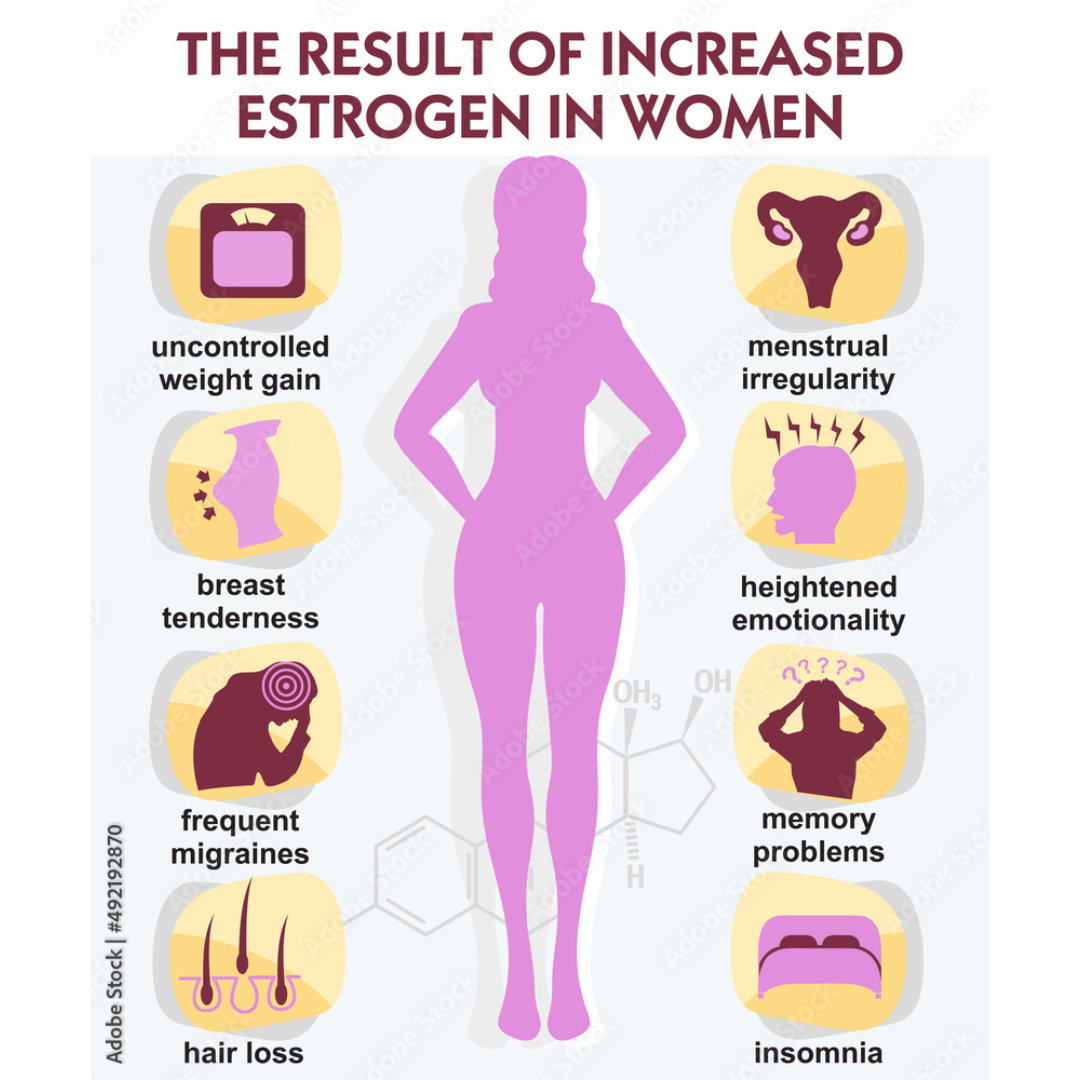
What is the role of estrogen?
Share
Estrogen is a fundamental sex hormone that plays an essential role in various physiological processes, particularly in women. This hormone acts on numerous systems, including the cardiovascular system, reproduction and metabolism, influencing sexual and secondary sexual characteristics. Understandingestrogen 's multiple effects is vital, especially during periods of hormonal change such as menopause, which can lead to a marked drop in its production. This article explores the functions of this hormone and its impact on the health of women, particularly menopausal women.
Estrogen: a sex hormone with multiple functions
Estrogen is a sex hormone produced mainly by the ovaries and involved in regulating the menstrual cycle. During the menstrual cycle,estrogen promotes the maturation of ovarian follicles and prepares the uterus for a potential pregnancy. In addition to its reproductive role, it influences secondary sexual characteristics such as breast development and body fat distribution.

Influence of estrogen on secondary sexual characteristics
In addition to its role in reproduction,estrogen influences the secondary sexual characteristics that differentiate the female body at puberty. These characteristics include:
-
Breast development: Estrogen stimulates the growth of breast tissue and contributes to the formation of mammary glands. This development generally begins at puberty and is an important feature of female secondary sexual characteristics.
-
Body fat distribution: Under the effect ofestrogen, body fat in women tends to be distributed more around the hips, thighs and buttocks. This fat distribution is not only a physical characteristic, but also plays a role in fertility and metabolic health.
-
Bone density and skin health:Estrogen contributes to bone density, reducing the risk of osteoporosis, particularly before the menopause. It also promotes skin health by influencing collagen production, resulting in firmer, more elastic skin.
These effects ofestrogen on secondary sexual characteristics and general physiology show just how central this hormone is to women's health at every stage of life.
Effects of estrogen on the cardiovascular system
Estrogens play a protective role in the cardiovascular system by positively influencing blood vessels. It dilates blood vessels and improves their elasticity, promoting healthy circulation and reducing the risk of cardiovascular disease.Estrogen also acts on blood lipids, increasing good cholesterol (HDL) and lowering bad cholesterol (LDL), thereby reducing the risk of cardiovascular disease.
However, in post-menopausal women, the decrease inestrogen production leads to a reduction in this natural protection, increasing the risk of cardiovascular disease. Some studies show that hormone replacement therapy can help reduce this risk in post-menopausal women, although this hormone treatment must be adapted and medically monitored to avoid undesirable side effects.
Impact of menopause: weight gain and associated symptoms
The menopause, marked by a drop inestrogen levels, leads to a variety of symptoms, including hot flushes, vaginal dryness, mood swings and often weight gain. The drop inestrogen promotes a redistribution of body fat towards the abdomen, increasing the risk of metabolic syndrome and cardiovascular disease. At the same time, this decline can reduce motivation to engage in physical activity, which, combined with metabolic changes, promotes weight gain.

Role of estrogen receptors and effects of small amounts of estrogen
Estrogen receptors are found in many organs such as the heart, bones, brain and skin, enablingestrogen to act locally to regulate important cellular functions. These estrogen receptors are essential for maintaining tissue health and limiting various disease risks. However, after menopause, the small amounts ofestrogen produced by the adrenal glands and adipose tissue are often no longer sufficient to properly activate these estrogen receptors, which can lead to menopausal symptoms such as vaginal dryness and an increased risk of bone, cardiovascular and neurodegenerative diseases.
Estrogen and hormone therapy for menopause
To relieve menopausal symptoms such as hot flushes and vaginal dryness, some women turn to hormone replacement therapy (HRT). This hormonal treatment aims to compensate for the drop inestrogen in the body and alleviate bothersome menopausal symptoms. HRT can also help prevent cardiovascular disease and osteoporosis by maintaining more stableestrogen levels in the body.
Conclusion: a crucial role in women's health
Estrogen is a sex hormone with varied and essential functions, influencing the menstrual cycle as well as the cardiovascular system and sexual characteristics. The hormonal changes associated with menopause can lead to a drop in this hormone, causing various menopausal symptoms and increasing the risk of cardiovascular disease and weight gain. Finally, regular physical activity, a balanced diet and medical follow-up can help menopausal women manage this transition by limiting the risks to their overall health.
